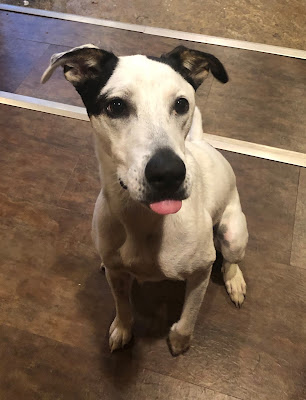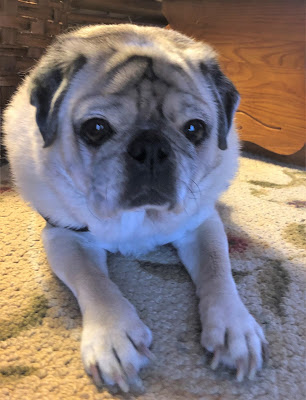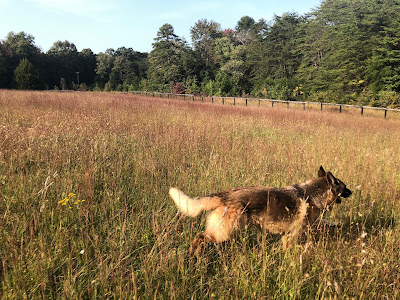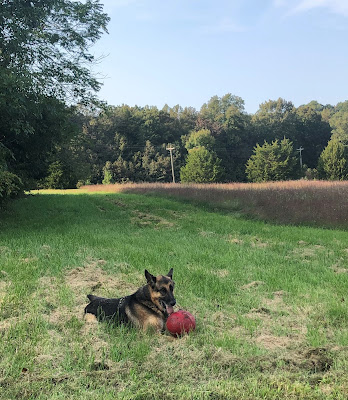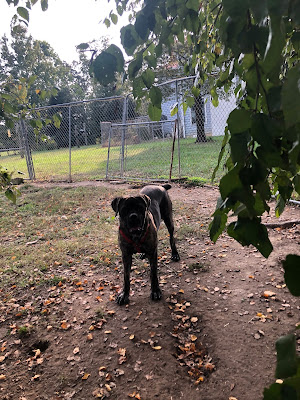Shirley J. (Allison) Jacques, 5/29/31 - 10/7/20
It's often said that gay men turn into their mothers. I can only hope it is true. We were quite close and we shared many interests and passions, gardening and politics chief among them. Although I shared her passion for politics, I didn't have her stomach for it. She was a strong woman, slight but mighty, able to stand up to right wing headwinds in the state of Kansas for 89 years, and even prevail against them on occasion. But I'm getting ahead of myself.
My family comes from Kansas which means they were pioneers. They loaded their meager belongings into horse drawn wagons and went in search of a better life. There was no promise of a better life, only a chance of it, and a hope. The historian Carl Becker once wrote about Kansas:
“Idealism must always prevail on the frontier, for the frontier, whether geographical or intellectual, offers little hope to those who see things as they are. To venture into the wilderness, one must see it, not as it is, but as it will be.”
And so it was with those who crossed the ocean, either alone as my great-great grandmother, or with family, and then headed west. They sought land and they found it in Kansas - rich, black soil that needed only rain, luck, and back-breaking labor to yield crops. They didn't make great fortunes, but they did make a living for themselves and their families with enough surplus that each generation was just slightly better off than the last.
My mother always felt a great affinity with those pioneers, their struggles, their fears, their losses, and their triumphs, modest though they may be. She carried their hopes and dreams, always seeing things not as they were, but as they could be.
The pioneer spirit didn't end with my ancestors who homesteaded land in Kansas in the 1860s. Each generation carried it forward, doing what had to be done to get things done, to make things better for themselves and their children. My mother's parents were still farming when she was growing up and I remember my grandmother talking about driving the truck in the fields at harvest time alongside the combine driven by my grandfather as he was cutting wheat. Thanks to the hard work of my grandparents, and those who went before them, they survived the dustbowl and the Great Depression, and my mother was the first in her family to attend a university.
Making a life and raising children in Kansas in the 1960s and '70s brought a new set of challenges that my mother faced with the same tenacity and determination as the pioneers who preceded her. She made sure we were educated and were well-traveled and well-read. She taught us to care about more than just ourselves, to have a world view that was bigger than our own lives and experience. And perhaps more importantly, she lead by example. She went to work to help put three kids through school, but she also did it to show us the importance of making a contribution to the world.
Inspired by the social justice movements of the 1960s, particularly the women's rights movement, my mother got involved in politics, progressive politics, which meant, of course, that she was a Democrat. She worked at the local, state, and national level, but really the local level, as the grass roots was her favorite territory. Although she lived in a deep red state, she was elected as county clerk of Saline County and held that office for 20 years until her retirement. She also recruited many others to run for local and state offices even against great odds, and she work tirelessly for them refusing to concede any office or position without a fight.
Although she was always a partisan, she was also a stone cold realist and knew she was nearly always going to be a minority point of view in Kansas. She also knew that much could be accomplished in non-partisan activities and she gave herself to those as well. I guess it started with the PTA and the League of Women Voters, but the list just grew from there. There was the Girl Scouts and Boy Scouts, the Salvation Army, the Food Bank, the Human Relations Commission, the Commission on Aging, and DVACK - the Domestic Violence Association of Central Kansas. These are just a few and I know that I've forgotten about many more than I remember. All of them had one thing in common, however - helping people.
My mother's life was one of service to others. She supported good works not with money, but with her own work. I'm sure she had many "firsts" in her life as a woman, but like the generations of pioneer women before her, she didn't make a big splash, she simply did what needed doing. Going through her things in the week after she died, I found a letter that referred to her as "the conscience of the community." I can't think of a more worthy title. Although it reflects no office and no official power, it's a power much like the tide, always stronger than expected.
p.s. I've been away from home for most of the past couple of months and away from this blog and Facebook. I plan to be heading back home sometime later next week.




